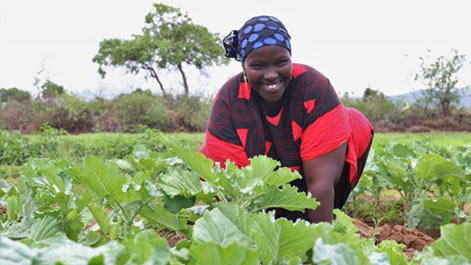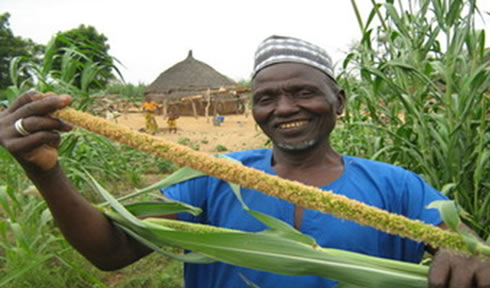May 2021 African Proverb of the Month You earn a living when you try, when you put in an effort. Zigula (Tanzania) Proverb
 |
Riziki nkujeza. (Zigula) Riziki ni kujaribu. (Swahili) Vous gagnez votre vie quand vous essayez, faites un effort. (French) You earn a living when you try, when you put in an effort. (English) |
Zigula (Tanzania) Proverb
Background, Meaning, and Everyday Use
The Zigula are a Bantu ethnic group found in the coastal region of Tanzania. They speak a language called Zigula with no known dialects. The Zigula occupy the Tanga, Pwani, Bagamoyo and West Central Manyara regions. They are thought to have fled east to their current homelands to avoid the slave trade. They are now credited with the establishment of Goshaland that was granted autonomy in the 19th century.
The Zigula believe that someone cannot earn a living without making any effort. One has to “knock on the door “for it to be opened. The Zigula were and still are, subsistence farmers, growing crops such as sisal that is used to make ropes and mats, sesame and corn. They also engage in fishing, artwork, and carvings that are sold to fetch an income.
The proverb you earn a living when you try, when you put in an effort (riziki nkujeza), shows a people with a good work ethic. The proverb is used in daily conversations among the Zigula to discourage laziness and encourage everyone to make efforts in meaningful activities that will be beneficial to the other members of the community and themselves. In this community, laziness is an unacceptable shortcoming, since the Zigula believe that hard work builds resilience and confidence.
Biblical Parallels
 Galatians 6:9 (NIV): “Let us not become weary in doing good, for at the proper time we will reap a harvest if we do not give up.”
Galatians 6:9 (NIV): “Let us not become weary in doing good, for at the proper time we will reap a harvest if we do not give up.”
2 Peter 1:5 (NIV): “For this very reason, make every effort to add to your faith, goodness; and to goodness, knowledge; and to knowledge, self-control; and to self-control, perseverance; and to perseverance, godliness.”
1 Thessalonians 4:11-12: “You should mind your own business and work with your hands, just as we told you, so that your daily life may win the respect of outsiders and so that you will not be dependent on anybody.”
2 Chronicles 15:7 (NIV): “But as for you, be strong and do not give up, for your work will be rewarded.”
Ruth 2:12: “The LORD recompense thy work, and a full reward is given thee of the LORD God of Israel, under whose wings thou art come to trust.”
Contemporary Use and Religious Application
 The members of a society have a duty to work hard and expect to receive a reward for their work. The most important part of work is not the work itself but the way it transforms the worker. Honest work done well gives the human person the opportunity to cultivate all the various physical, intellectual, moral, and spiritual potentials God has implanted in us while providing a service to others in the community.
The members of a society have a duty to work hard and expect to receive a reward for their work. The most important part of work is not the work itself but the way it transforms the worker. Honest work done well gives the human person the opportunity to cultivate all the various physical, intellectual, moral, and spiritual potentials God has implanted in us while providing a service to others in the community.
Work matters to God and He has provided us with unique skills, talents, and gifts, and calls us to take particular roles in the community and family. We are responsible for the quality of our work and we are judged and rewarded accordingly. Jesus learned a trade as a carpenter’s son and worked in that trade until, at age 30, he became a traveling rabbi and carried out his purpose as our Messiah. He understood the value of hard work because it is not just “doing”, but it is a mission. Through our work, we cultivate and preserve creation, and participate in the Spirit of Jesus and His redemptive mission — when by our activity we give sustenance to our families and respond to the needs of our neighbor.
The Zigula proverb you earn a living when you try, when put in an effort (riziki nkujeza), can be used during this present Covid-19 pandemic to encourage people to try new ventures and to use new strategies of doing business, despite the challengesbeing experienced. Many people have lost their jobs and businesses due to economic and health disruptions, hence losing clientele. Yet the restrictions mandated by the government can lead to creativity, the introduction of new strategies for operating businesses and unusual times of operation. The people can seek new ways to earn a living to maintain their families.
Joseph Kai
Nairobi, Kenya
Cell Phone: +254 700-446884
Email:josephkaikariuki@gmail.com
